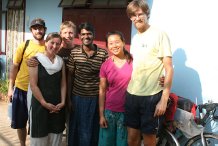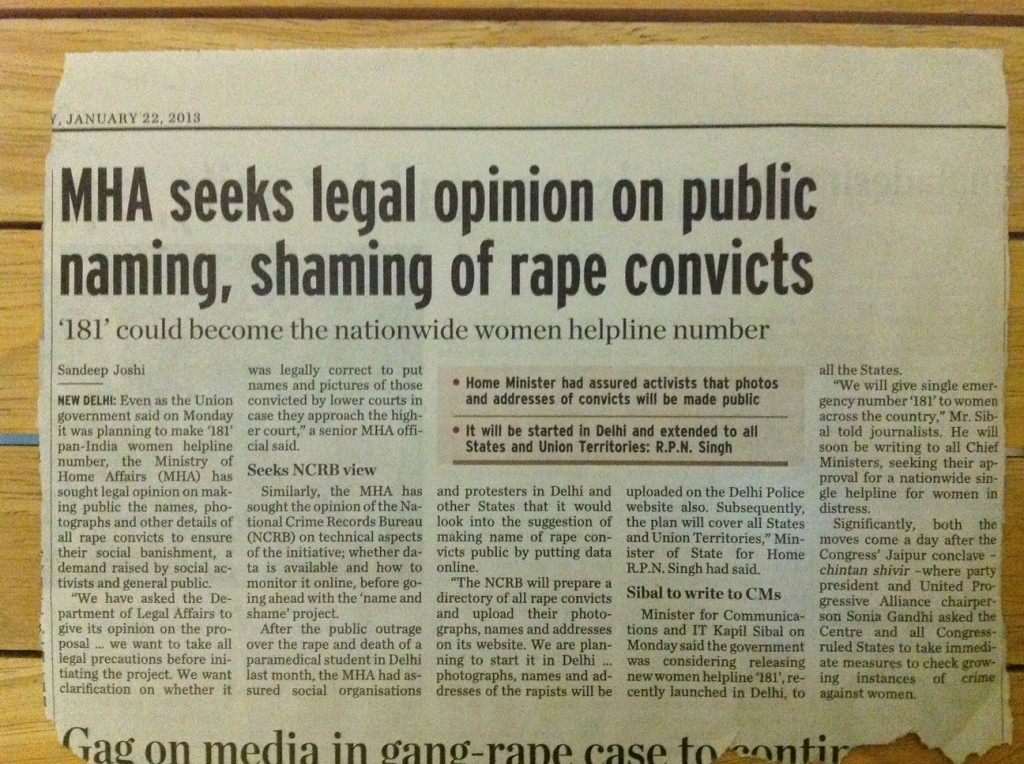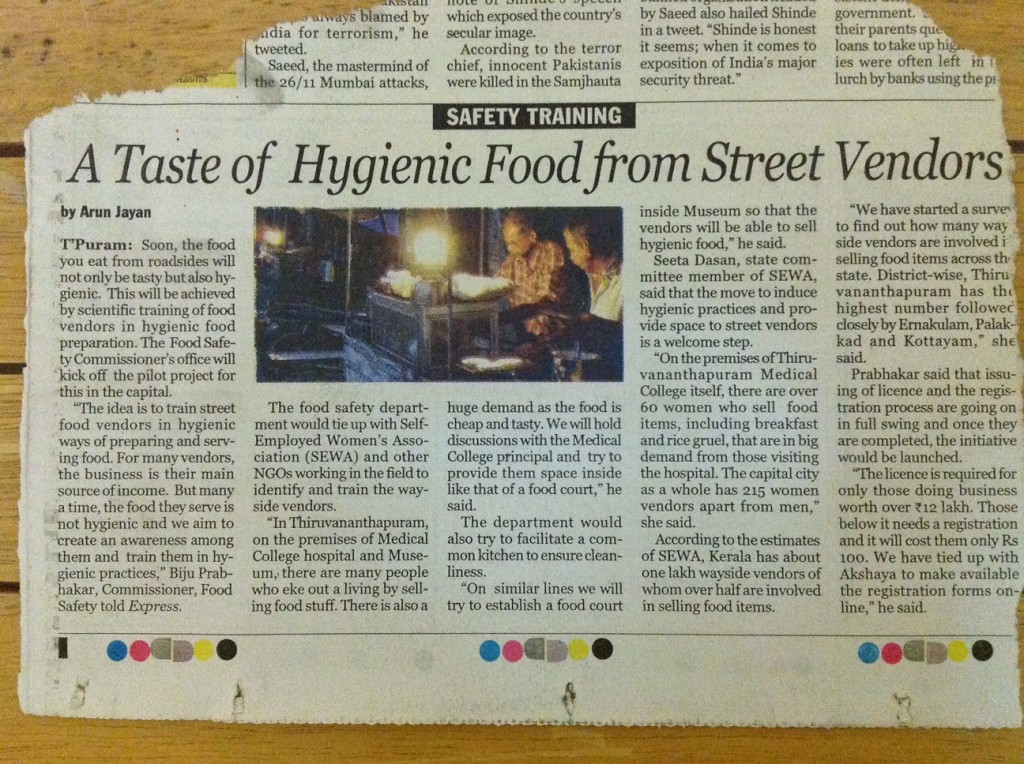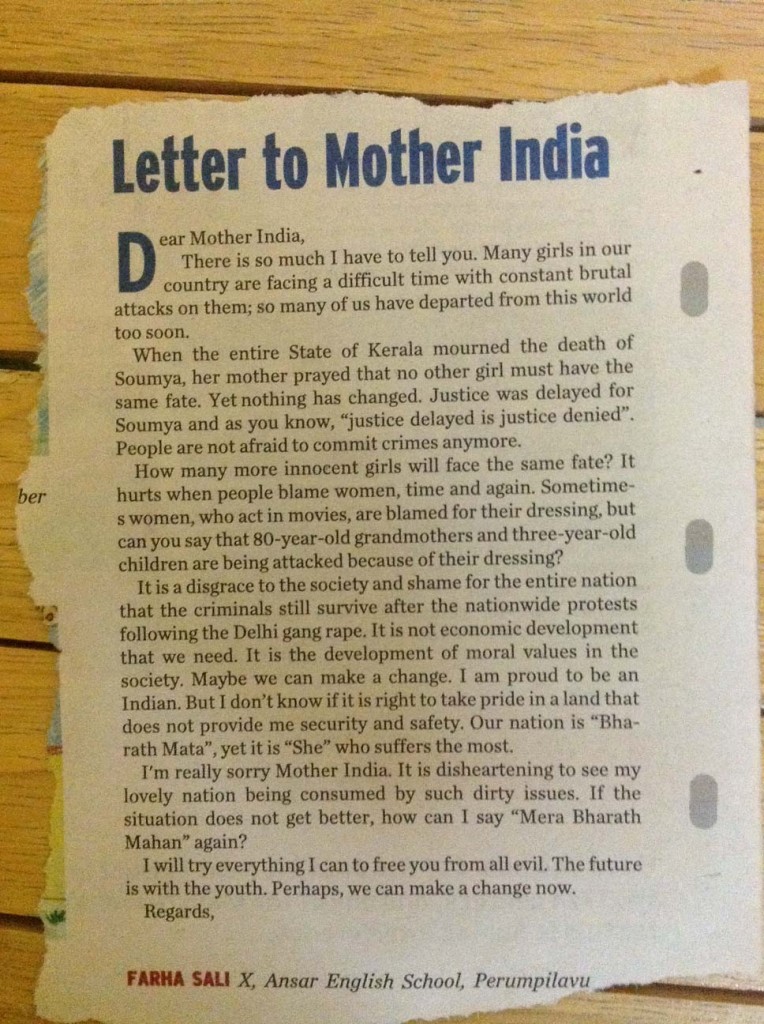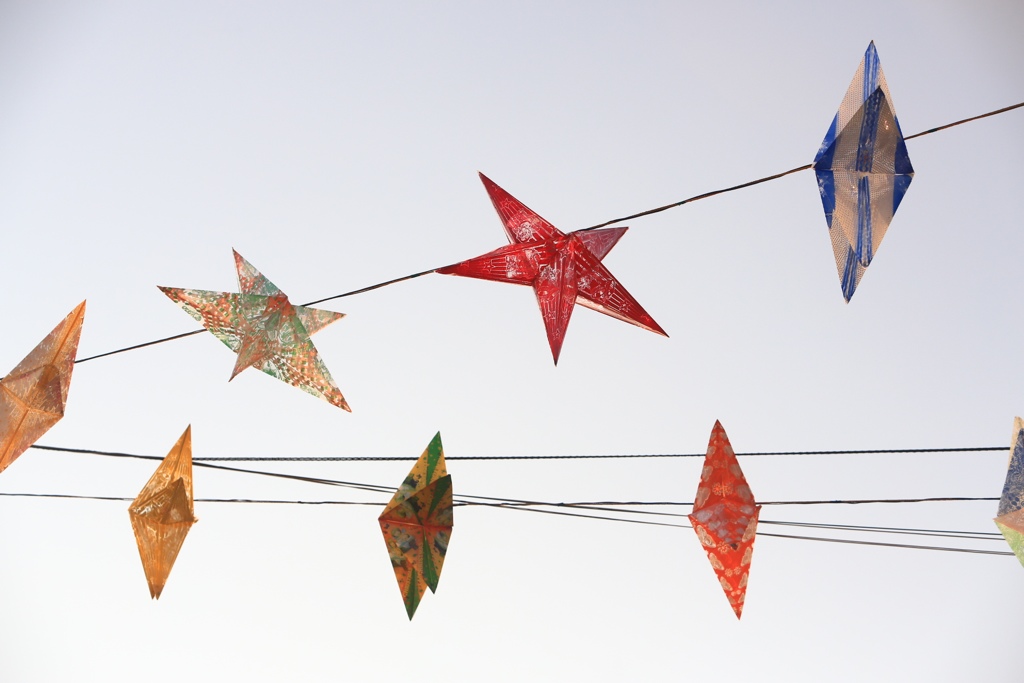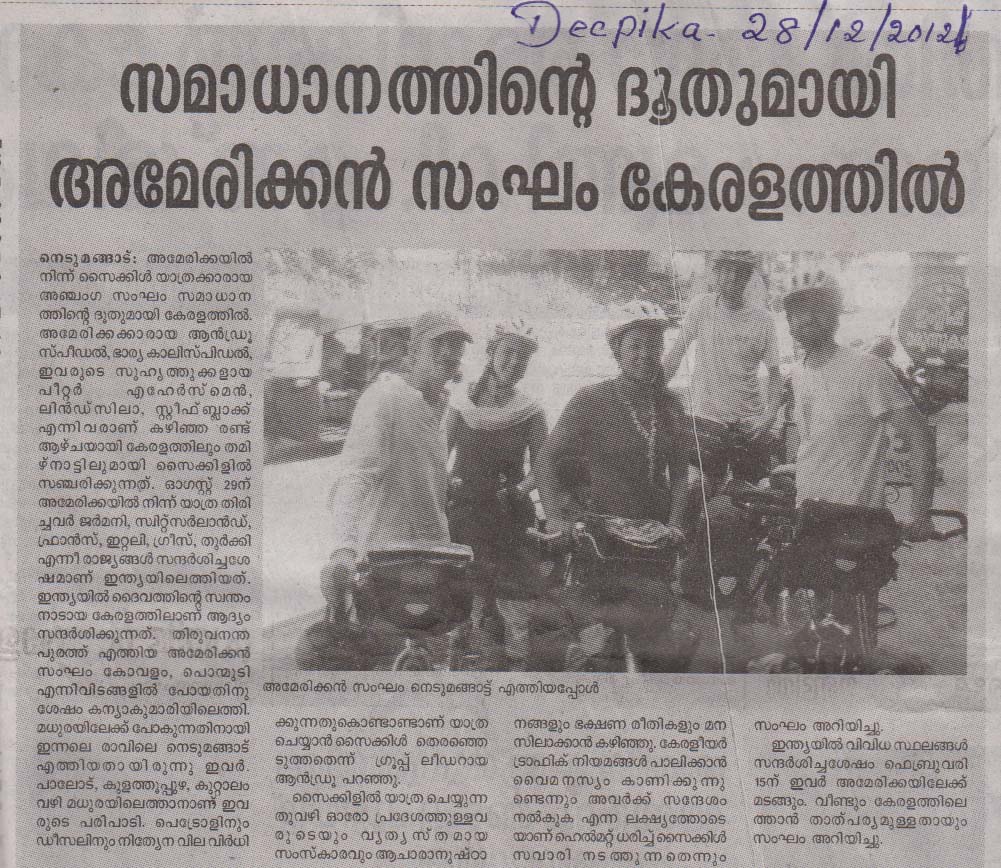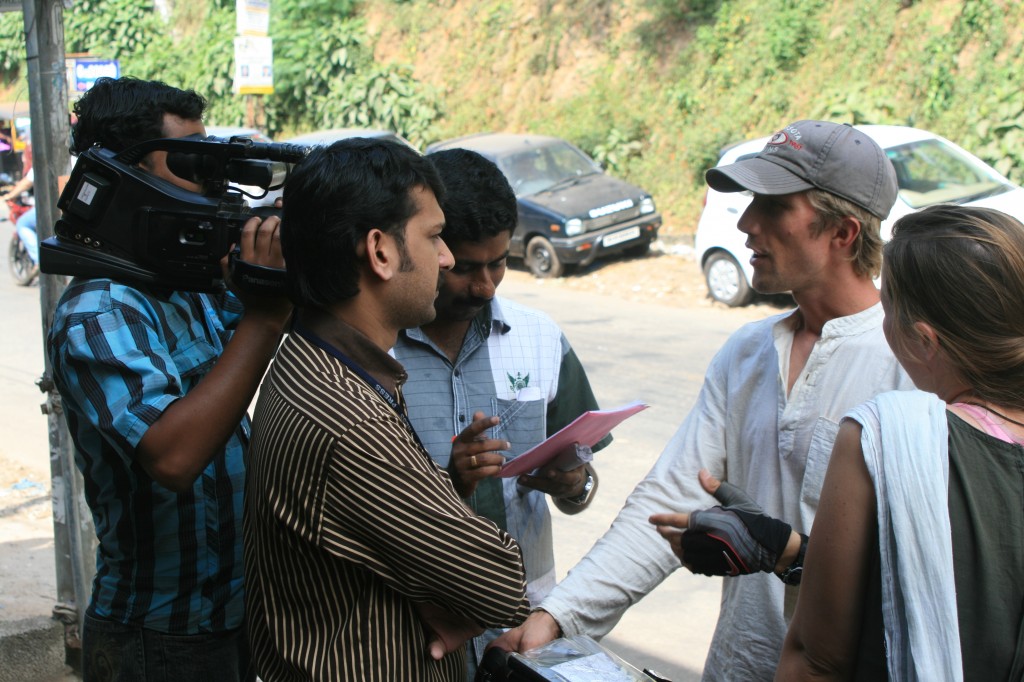Chinnaturai hospitality India nuns
Posted by: Andrew
Grigio Shery spoke quite quickly, kind of like an upbeat car salesman who needs to keep the ball rolling. He had his MBA in marketing and was working in the sprawling city of Chennai, Tamil Nadu’s capitol, in business. Now however he was home to his coastal fishing village for a couple weeks for the Christmas holiday. We also happened to be in that same coastal village on our bicycles as we headed south toward the southern tip of India. Shery stopped by on his motorcycle as we were about to enter a small restaurant for dinner. We had already gone through the usual negotiations with the proprieter:
“Do you have food?” [gesture of putting five fingers to lips]
Head wobble Yes.
“What do you have?”
Head wobble.
“Do you have rice?”
“No rice. Paarotha, dhosa, chicken fry…” [fried dough, pancake material, fried chicken]
“Do you have Sambar?” [thick vegetable gravy broth]
“Mmb. Sambar.” Head wobble.
Turning to the others: “He has chicken, sambar, parotha, dhosa… waddyathink?”
We thought we’d stay.
It was at this point in our evening, as we were getting slowly settled around the one table in the small cozy but dingy food joint, that Shery approached. With an excellent English vocabulary and a lilt and bend that was still difficult for our American ears to catch, he began to find out about us and what we might be needing (he doing most of the talking). When he found out we’d stopped for dinner, he negotiated with cook to get us something to eat. Since we’d already done that, we were a bit fatigued with the interaction and “help”; that is, until he asked us where we were staying.
So far we’d scoped very few possible camp sites, and we really had no idea where we’d stay the night. Our plan was to eat some dinner, cruise to the edge of town where we’d find a faucet or a river to bathe in, and camp somewhere after the darkness fell, so as to attract less attention. When Shery found out we needed a place to stay, he offered to talk to the nuns for us. “I will ask the mother superior, and you can stay at St. Jude’s, if she says yes. There they have a room where you can wash, make yourselves comfortable, you can see the children as they are feeding children and taking care of them, so I think it will be no problem for you to stay there, and you can attend mass in the morning if you like, so I will just speak with the mother and we will see. Don’t worry! This is India, and we are a Christian people! We will take care of you!…”
We arranged that we’d meet him in an hour and a half over at the church to find out the low down on the nunnery, and we thanked him. After all, this promised to be not only a place to stay and wash up, but also a pretty cool window into south Indian coastal Christian culture. Earlier that day, as we were winding our way along the coast dodging pedestrians, rickshaws and buses loaded to the gills, we kept noticing that at every small town or village or turn in the road there seemed to be a huge cathedral style church. Sometimes they weren’t as huge, but all of them had that strange mix of ancient establishment meets garish makeup. Many had grottos to Mary outside, but in the absence of rocks they were made of what looked to be gray spray painted fiberglass material. It was strange because we expected to find more Hindus in India, but here we seemed to be in a Roman Catholic pocket (which we were). That also meant that at several of the restaurants we stopped at they only served fried chunks of chicken or beef–not the vegetable sauce you find at Hindu-run places.
When we found him later, he brought us to the nuns’ quarters and introduced us, where were given a room for the girls with attached bath, and the guys were promised we could sleep in a classroom as soon as the classes let out. We showered up and learned that daily mass was at 6:30 a.m., but the bells would ring at 5:00, 5:15, and 5:45. “No problem,” I remember thinking, “we can handle bells.” And the fact that they were to be rung at three separate times made me think that perhaps they wouldn’t be incessant, and therefore somewhat ignorable if we wanted to sleep past the first two.
At 4:55 I remember hearing some bells tolling faintly outside somewhere across the open sand lot. “Not so bad,” I thought to myself, and prepared to drift back into sleep for a bit. But that was not to be. Immediately following the bells, there was a loudspeaker crackling, and then the music started playing. Not quiet, contemplative music, but loud Indian music. It was in its own way beautiful, but seemed glaringly out of place in the cool 5 a.m. pre-dawn darkness.
After mass we joined Shery for a stroll through the houses to the coast, to see the fishing operation. “They catch sharks here,” he told us. “We are shark fishermen. The boats go out sometimes for a month at a time, taking everything with them–packing ice, water, clothes, supplies, rice, oil–you know, cooking things–everything. Most of the sharks go to the Chinese and the Japanese…for medicinal purposes.” He told us how at Christmas all the boats come in to the harbor and it’s a real party.
After that he invited us back to his house to meet his family and have some sweet milk tea (chai). His father had cancer. Shery said it was from smoking and drinking too much. “He is an uneducated man. Already he had [cancer], and taken chemo, and then the cancer went away. But he didn’t listen to the doctor when he told him, ‘If you touch this stuff again you will die.'” Shery told us how he, as the eldest, sat his father down and talked to him:
“You have given us everything. You have worked and now all your children are educated and we have this house–don’t make us miss you. Now we will provide, we are grown.”
“Now if anyone says anything to him, he will just listen. If someone says, ‘Don’t do it!’, he will listen. That is how it is with my father. I have become the father now to him, as the eldest son. That’s how it is in India.”
Shery had two brothers and three sisters. We found out one of his sisters is getting married on February 7, and that is cause for both celebration and some work. He said that for her dowry he must contribute 2.5 to 3 laks Rupees (1 lak = 100,000). This would amount to about $6000. The dowry consists of two treasures. One is the money, collected from the family of the bride to give to the groom. This money is not kept by the groom exclusively, but is distributed among his mother and sisters. The other treasure is the fine garments and jewelry. This is for the couple to keep exclusively.
Even for US standards, $6000 is a lot to contribute for a wedding, and it is difficult to earn this much money in India; especially when you are supporting a family. To make it back more quickly he wants to move abroad and work, then maybe settle somewhere else if he can arrange the visas. The dowry money didn’t worry him so much, because he was also an educated man, he said, and would fetch a nice dowry himself some day.
After he brought us back to the convent, and we had thanked the sisters with a small contribution to their work, we said our goodbyes. It was already past 10 a.m., and we were eager to get on the road. He left us with his flashing smile and a blessing. “Maybe I’ll come to America, and see you there.” Maybe he would.
